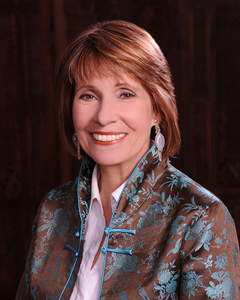Because I often host money workshops, I do not have the experience that my workshop attendees (mostly intergenerational members of families) have. It was a delight to be able to participate in a workshop hosted by a therapist.
In this money workshop, we all pretended to be a family. Although none of us were related, it did not take long for emotional dynamics to come into play between us.
The first direction was to take the bills out of our wallets and give these bills to the host. Immediately questions of trust were unearthed. Would the money be returned? Should I hold back any bills? Who cares, it’s just money, right? were just some of the dynamics that came up.
Next, the host asked for a volunteer to count the money the host was holding. That brought comments like: “How can we trust the counter?” “Are they going to keep the money?” “Can I count the money too to be sure they counted it correctly?”
Next, the host asked for a volunteer to divide the pile of money into seven uneven piles (matching the number of participants.) The host then picked up a pile, gave it to the first person, picked up the next, gave it to the second person and continued to distribute the piles like this until all the piles were distributed. As you can imagine, this created quite a stream of comments as some felt short changed while others felt like they got a good deal from the initial amount they had given the host. One person felt like a weight had been taken off his shoulders as the pile he got was more than what he had borrowed from another player to give to the host (he did not have any bills in his wallet.) One person left the game frustrated that this was “going nowhere. You’re just moving money here and some of it was my money that I no longer have.”
The host then told us to put any money that we had above the smallest amount a player had in their hand, in a pile on the floor. Each participant now had the same amount of money in their possession. Tension turned to relief and awkward laughter.
The host asked everyone to talk about their favorite charities which we did, one at a time. The host then had us talk about what should be done with the money in the pile on the floor. Should it be returned to the participants or should it be given to one of the charities mentioned by us? We had seven minutes to reach consensus. We did not reach consensus. The host then had everyone pick a number from a hat. He called out a number and the person holding that number was identified. The host then told us we had another five minutes to reach a consensus about what to do with that money or it would go to the person holding the number he called. Still no consensus so the host gave the money in the middle of the floor to the person whose number he had announced.
Two people were okay with the outcome; two people were outraged that their money had been “taken from them”; one person asked what the person who was awarded the money was going to do with their new money? The person with the money said they would either give it to the charity they had defended or they would return it to each participant so they could be made whole. But the group had to come to a consensus on which choice to make. The decision was to give it to the organization that the person holding the money had talked about.
We then debriefed on the exercise, paying close attention to the emotions we exhibited and the feelings we had during the various sections of the money exercise. I found myself noting reactive behaviors triggered by feelings I had as a child around money.
Money exercises are a wonderful way to experience beliefs and emotions around money. You can identify patterns of behaviors that are unproductive and introduce new patterns of behaviors that encourage productive habits and behaviors around your money. Often, we hide and bury these feelings but they can come up in the oddest places.
If you would like to explore a money exercise with your family or group, let me know. I would be delighted to develop a money workshop for you.





